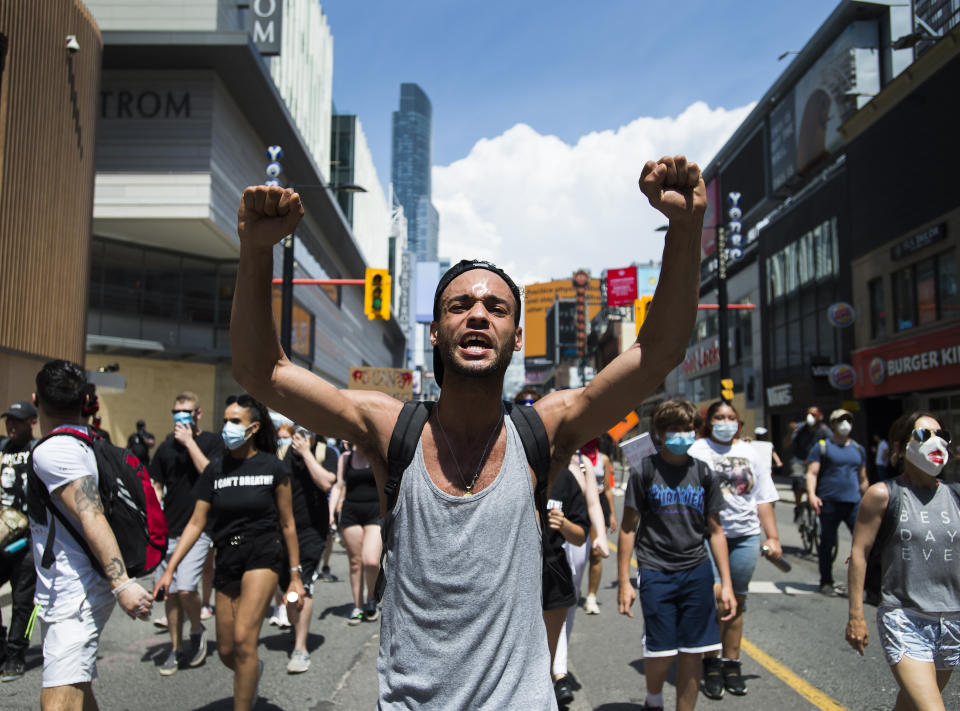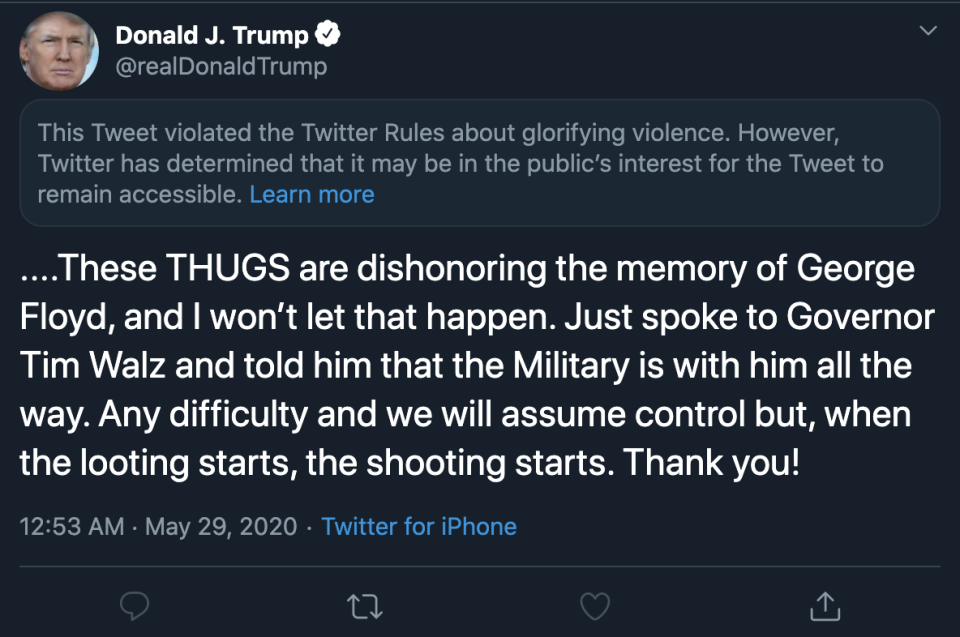Social Chain CEO: Brands need to bring change that lasts ‘longer than a trending topic’
Social media sites ranging from Facebook (FB) and Instagram to Twitter (TWTR), Snapchat (SNAP), and LinkedIn (MSFT) have seen a flurry of posts from multinational corporations and small businesses alike in their support of protests against police brutality in the wake of the death of George Floyd.
But brands also straddle a fine line between expressing support for protesters and simply trying to capitalize upon increased public support for the movement.
According to Social Chain CEO Steve Bartlett, there are ways companies can show their support in the fight against racial inequality without coming off as phony and predatory, including providing concrete examples of how brands are working to make changes themselves.
“Don't view this as a moment of [public relations] opportunity. View it as a moment for real change,” Bartlett told Yahoo Finance’s The First Trade.
The CEO’s firm develops social media strategies for major brands including SuperDry, Veet, and Brita.
Brands need to be ‘truthful’
Bartlett explained that brands shouldn’t contradict themselves on social media by espousing praise for racial equality while lacking diversity within their own businesses.
“We live in a glass-box world now where all of your employees have Instagram and Snapchat, LinkedIn, Glassdoor. They can all speak to the world about the true nature of what's going on in your business,” he said.

“So if you say one thing on social media, it's literally the worst thing to then be entirely contradicting yourself, if you have an all-white board in your company, and you're telling the world you're X, Y and Z, this will be pointed out in a matter of seconds.”
Ensuring brands don’t just see the current protest movement as a passing fad they can glom onto to raise their profiles is equally important, Bartlett explained.
“What I want to see from brands, as a black man, is the acknowledgement that once this stops trending on social media, I'm still going to be black, my kids are still going to be black, and this isn't about being correct today. It's about how do we bring about systemic change that will last a little bit longer than a trending topic,” he said.
Social media’s issues
While social media platforms are giving users the ability to spread information about racial inequities in the U.S. and around the world, those same companies are facing backlash in their own backyards, as both Facebook and Twitter deal with the fallout from President Trump’s controversial post that included the racially charged line “When the looting starts, the shooting starts.”

Twitter was quick to react to Trump’s post, hiding it behind a banner that said it violated the company’s terms of service for “glorifying violence.” That move came just days after the social network posted a fact-check marker on Trump’s tweet claiming mail-in ballots lead to widespread voter fraud.
Trump is now seeking to overhaul Section 230 of the Communications Decency Act, which protects online platforms against liability for what their users post and serves as a foundational piece of the modern internet.
Facebook, meanwhile, left Trump’s “When the looting starts, the shooting starts” post alone on both Facebook and Instagram.
The fallout was swift, with Facebook employees staging a virtual walkout from the company and several high-profile employees issuing a rebuke of CEO Mark Zuckerberg’s inaction.
Bartlett, however, says he’s sympathetic to the Facebook CEO’s situation.
“Mark Zuckerberg has a choice there. He can take down a president's post, which might be seen as a violation of free speech to some of his employees, which might cause a walkout amongst some of his employees,” he said.
“Or he can leave it up in the public interest, as he said in his letter this week. His choice was to leave it up. It's a situation where you just can't win. You can't win.”
As for whether the current backlash against Zuckerberg and Facebook will last, Bartlett says it will likely blow over in time.
“I think that, you know, I've seen this huge anti-Facebook narrative for a very long time. So I don't think Facebook can really do much right anyway. But, yeah, I do—I think people will move on to the next thing pretty quickly.”
Got a tip? Email Daniel Howley at [email protected] over via encrypted mail at [email protected], and follow him on Twitter at @DanielHowley.
More from Dan:
Amazon customers are less happy about the service despite massive pandemic boost
Venture capitalist Bradley Tusk calls for repeal of law protecting internet companies
Zoom earnings skyrocket as coronavirus use booms, beats Wall Street estimates
Follow Yahoo Finance on Twitter, Facebook, Instagram, Flipboard, SmartNews, LinkedIn, YouTube, and reddit

 Yahoo Finance
Yahoo Finance 